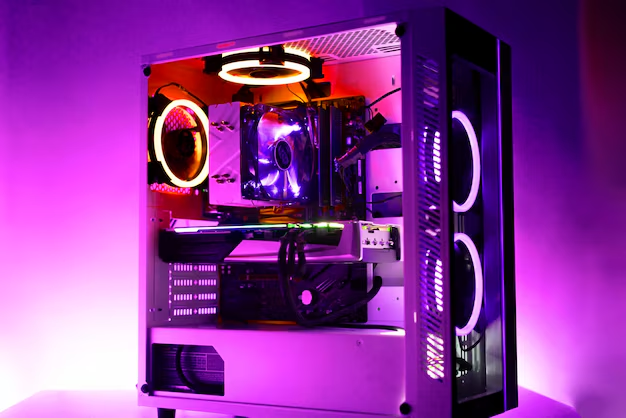Case selection is the most fun and exciting aspect of building a gaming PC. It is the clear representation of your build’s aesthetics and says a lot about your taste. In this article, we will discuss what you should keep in mind when choosing a case for your gaming PC.
Form Factor
The form factor requires the most attention when choosing a case for your gaming PC. It determines the size and layout of your PC’s internal components and significantly impacts the compatibility.
To select the best PC case for your gaming PC, consider the following questions:
- What size do you want?
- Do you want a large tower with many rooms for multiple GPUs?
- How much is the space of your gaming setup?
Once you get to know what size you want for the case, you can start considering specific form factors for gaming PC cases. You have many options for this, including full tower cases, mid-tower cases, mini ITX PC cases, and micro ATX PC cases. You can select any of them that best matches your needs and preferences.
Aesthetics
A well-designed case can enhance the overall look of your gaming setup and provide you with the best experience. Therefore, you should pick the PC case with the design you like the most. Ensure it has a durable, long-lasting structure and aesthetic appeal.
When choosing the best-looking PC case, you must consider:
- RGB Lighting: It has a wide range of colors and effects that can give an immersive look to your gaming PC.
- Design: You should choose a customized design according to your preference.
- Tempered Glass Panel: By using this, you can showcase teh internal components of your gaming PC.
- Material: Look for durable materials that can provide good structural strength and protect your PC’s internal components.
GPU and Motherboard Compatibility
When choosing a gaming PC case, you must consider GPU and motherboard compatibility to ensure a proper fit and optimal performance. Always aim for more space to avoid potential issues.
To ensure a case compatible with the motherboard, you should consider the following factors:
- Motherboard’s form factor
- Alignment of mounting holes and overall dimensions
And for GPU compatibility, consider:
- GPU Size
- Case Depth
- Airflow
- Space for the Cooling Clearance
Connectivity
Smooth connectivity is crucial for convenient access to peripheral devices and future upgrades. It is always best to choose a gaming PC case with multiple connectivity options, such as audio jacks, USB ports, and card reader ports.
Additional connectivity options enhance the functionality of your gaming PC and allow you to upgrade it by adding more peripheral devices in the future. When choosing the case, you must ensure its connectivity options are compatible with your motherboard’s features.
Accessibility and Cable Management
Before purchasing a case for your gaming PC, you must examine it for the accessibility and cable management options to keep your gaming setup visually appealing.
To keep your cables organized and out of sight, you must ensure your PC case has:
- Dedicated cable management channels
- PSY shrouds
- Proper cable routing holes
- Rubber grommets
- Tie-down points














